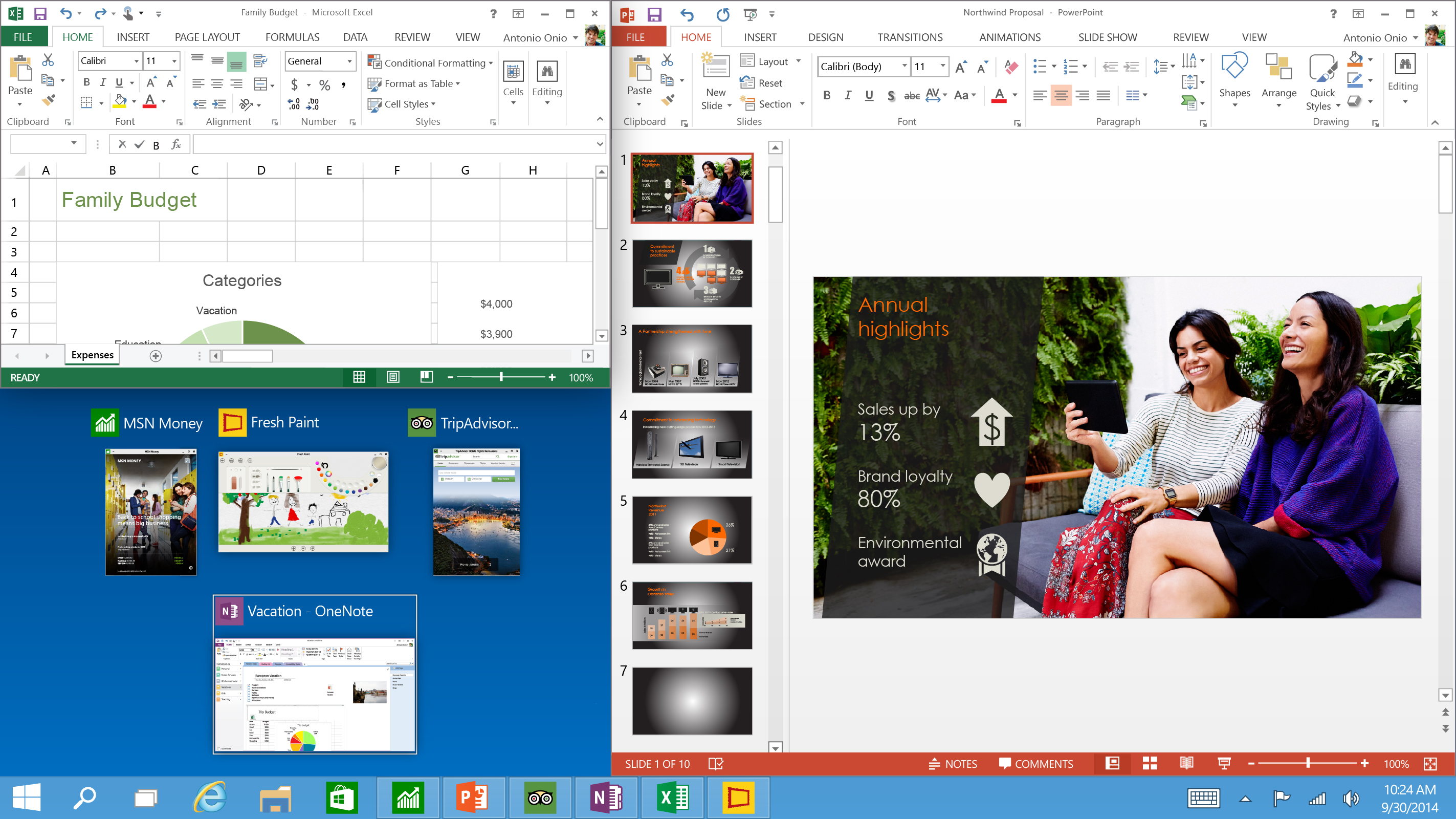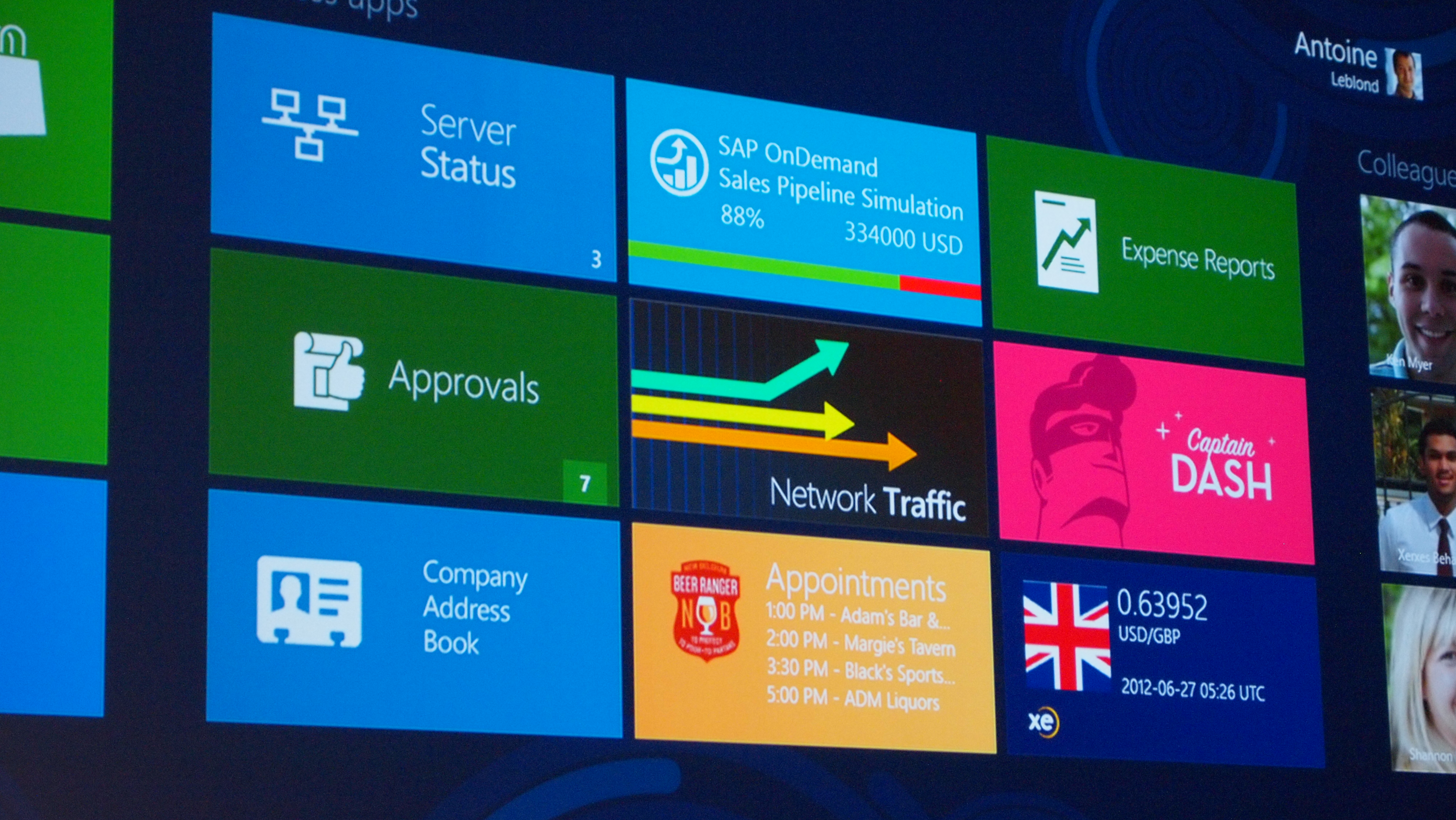Why Windows 10 is excellent news for businesses
It's still very early days for Windows 10, but we already know about many benefits

Sign up for breaking news, reviews, opinion, top tech deals, and more.
You are now subscribed
Your newsletter sign-up was successful
It's still very early days for Windows 10. There's a lot we know but, somewhat more importantly, there's a lot we don't know yet.
But it's already easy to see that Windows 10 will be far better for business and corporate use than Windows 8 and 8.1 ever were. And that's firstly because Microsoft has finally acknowledged that companies and corporates are changing.
Organisations are now mobile-first and they need flexible systems that perform in and out of the office and devices that can work with software and services working across multiple platforms. BYOD (Bring Your Own Device) has become overused as a phrase, but it's fact.
Secondly, with the push to prepare Windows 10 features for widespread adoption Microsoft is also acknowledging that Windows 8 was a complete failure for business use. Despite Microsoft's launch pleas to the contrary ("we've completed hundreds of thousands of hours of user testing," a spokesperson told me at the time) Windows 8 was a complete disaster in terms of usability.
We attended an event in Amsterdam three years ago where Microsoft tried to sell the business side of Windows 8's Start Screen (see below). It was argued, somewhat understandably, that having at-a-glance information on the live tiles – such as stocks, new emails, social updates and more - could be of benefit for business users wanting an at-a-glance overview This was well before the advent of the ability to boot straight to the desktop in Windows 8.1, so it was the Start screen or nothing,

Despite Microsoft's bluster that day it was clear then as now that Windows 8 was far more of a consumer-friendly proposition than a business one. It's probable that those within Microsoft never expected the Windows 8 cycle to be a success in terms of licenses sold to businesses.
After all, what they had on their hands was an OS that was overtly touch-friendly rather than keyboard-and-mouse friendly. As it turned out consumers couldn't work out where anything was, so there was little chance of a touch-first OS being adopted on corporate desktops.
Sign up to the TechRadar Pro newsletter to get all the top news, opinion, features and guidance your business needs to succeed!
It also took a monumental effort to stop businesses from being dependent on Windows XP. The OS that just wouldn't die took an almighty effort to eventually kill off. Despite a lack of support and Microsoft chatter about upgrading to Windows 7, there are thousands of businesses out there still running stuff on XP.
So here we are, with most businesses and corporates running Windows 7. The next challenge for Microsoft is to sell them another OS for their next hardware cycle. And that OS is Windows 10. Windows 7 to Windows 10 is a leap, but the learning curve is small compared to the big arc of Windows 8 (and, to a lesser extent, 8.1).
Microsoft is very happy to admit that one of the big benefits of Windows 10 is that it's a familiar interface, much like that in Windows 7 (although recent versions of the Windows 10 Start Menu work more like the Windows 8 Start Screen). Although there are some clever developments with the OS that – on the surface – look like they'll have a big impact, it's unlikely to be the same for business users.
The whole point of Microsoft's original Windows 10 launch event last September was to speak to corporate and enterprise users and get them buying into the new OS. "Windows 10 is a very novel approach of separating corporate and personal data across all devices," Myerson said on stage. "Windows 10 is going to be our greatest enterprise platform, ever."
Windows 10 will be a converged platform across multiple devices ('One Windows' is the idea) and that also means apps will be able to be shared with Windows Phone 10 as well as small form factor tablets and so on.
Dan (Twitter, Google+) is TechRadar's Former Deputy Editor and is now in charge at our sister site T3.com. Covering all things computing, internet and mobile he's a seasoned regular at major tech shows such as CES, IFA and Mobile World Congress. Dan has also been a tech expert for many outlets including BBC Radio 4, 5Live and the World Service, The Sun and ITV News.